Learn about the harmful effects of stink bugs on cashew trees and how to effectively prevent them to protect the productivity of your cashew garden.
Cashew trees are a significant source of economic value for many farming households. However, they are frequently threatened by a range of pests and diseases, among which the mosquito bug is one of the most concerning. To protect your cashew orchards, understanding mosquito bugs and how to control them is essential.
Mosquito bugs are small pests, measuring only about 1.5–2 mm in length, with brown or black bodies. They have long, slender bodies and transparent, thin wings that enable them to move and reproduce quickly. Their most distinctive feature is their long mouthpart, used for piercing and sucking plant sap.
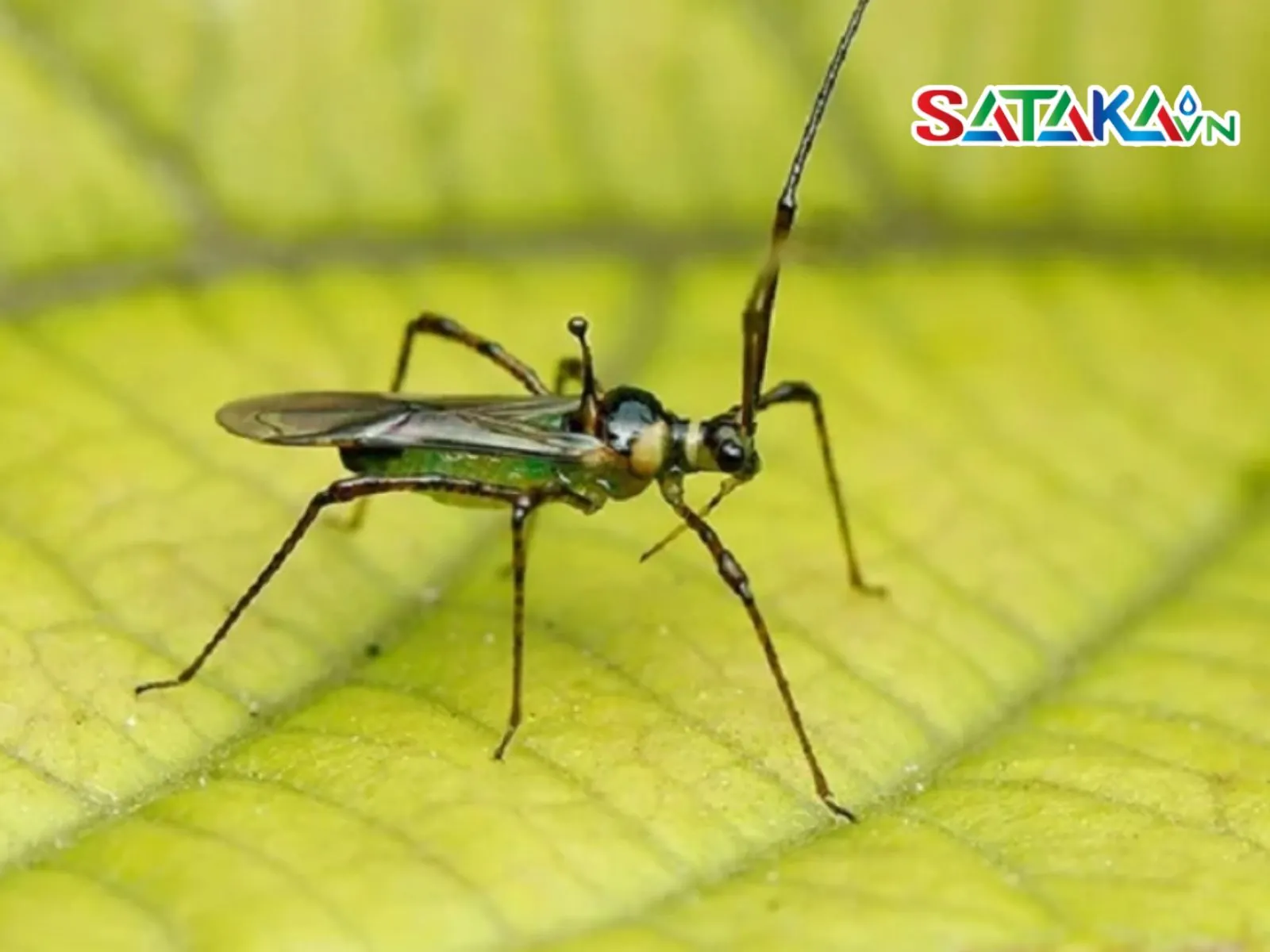
Shape of mosquito bug
These pests thrive in warm and humid weather, especially during the flowering and fruit-setting stages of cashew trees. They can cause damage at every stage of their lifecycle—egg, nymph, and adult—making detection and control more challenging.
Mosquito bugs cause direct damage by piercing and sucking sap from cashew leaves, flowers, and young fruits. The affected parts dry out, resulting in premature fruit drop and significantly reduced yields. If left uncontrolled, the trees can become severely weakened and may even die.
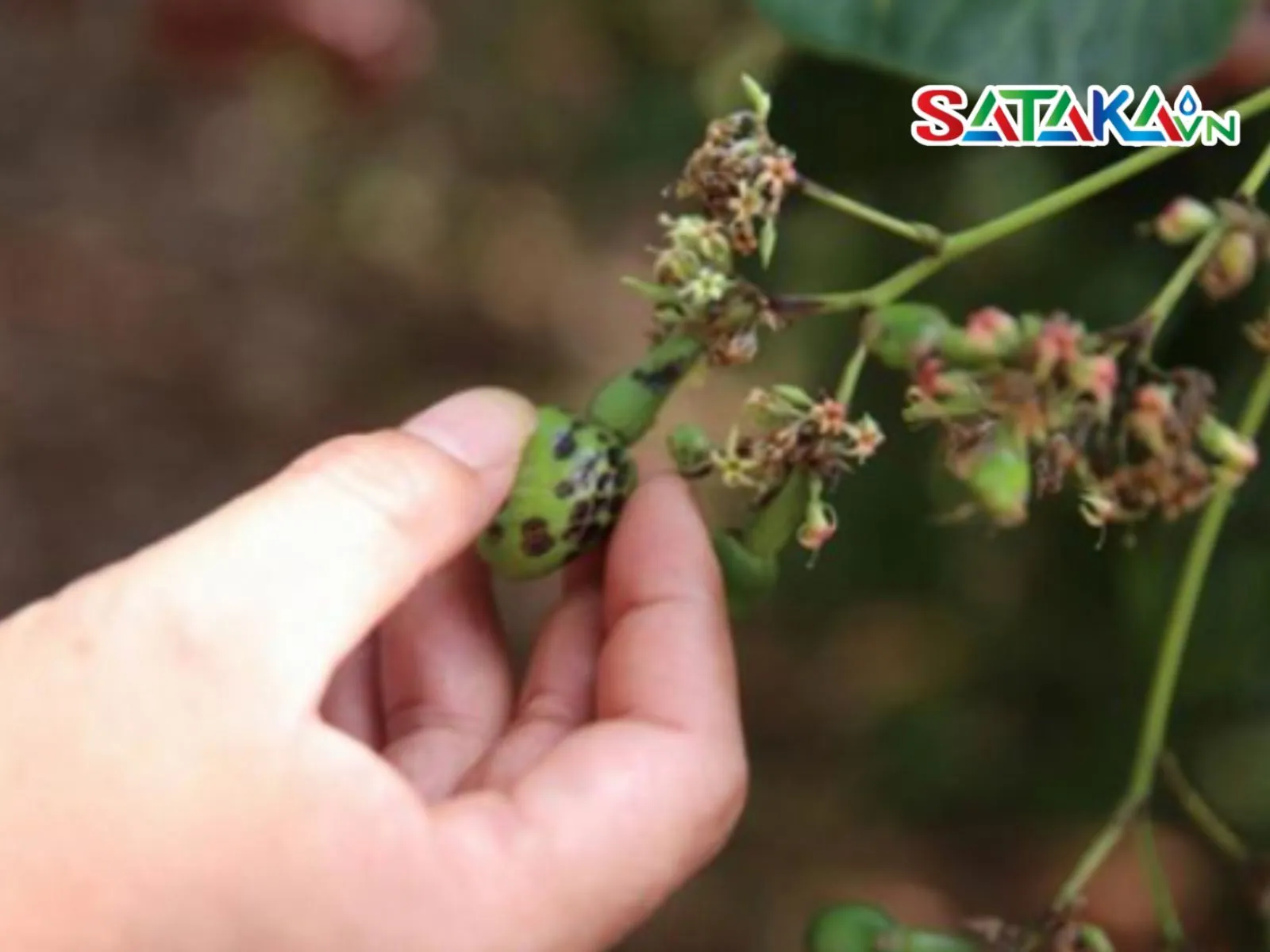
Young cashew fruit is attacked by mosquitoes
Additionally, mosquito bugs cause early leaf drop, weakening the trees and making recovery difficult. This negatively impacts the growth of the trees in the following season.
Warm and humid environments provide ideal conditions for mosquito bugs to thrive. In particular, poorly managed orchards are more susceptible to mosquito bug infestations. Orchards without preventive spraying or integrated pest control measures often become easy targets.
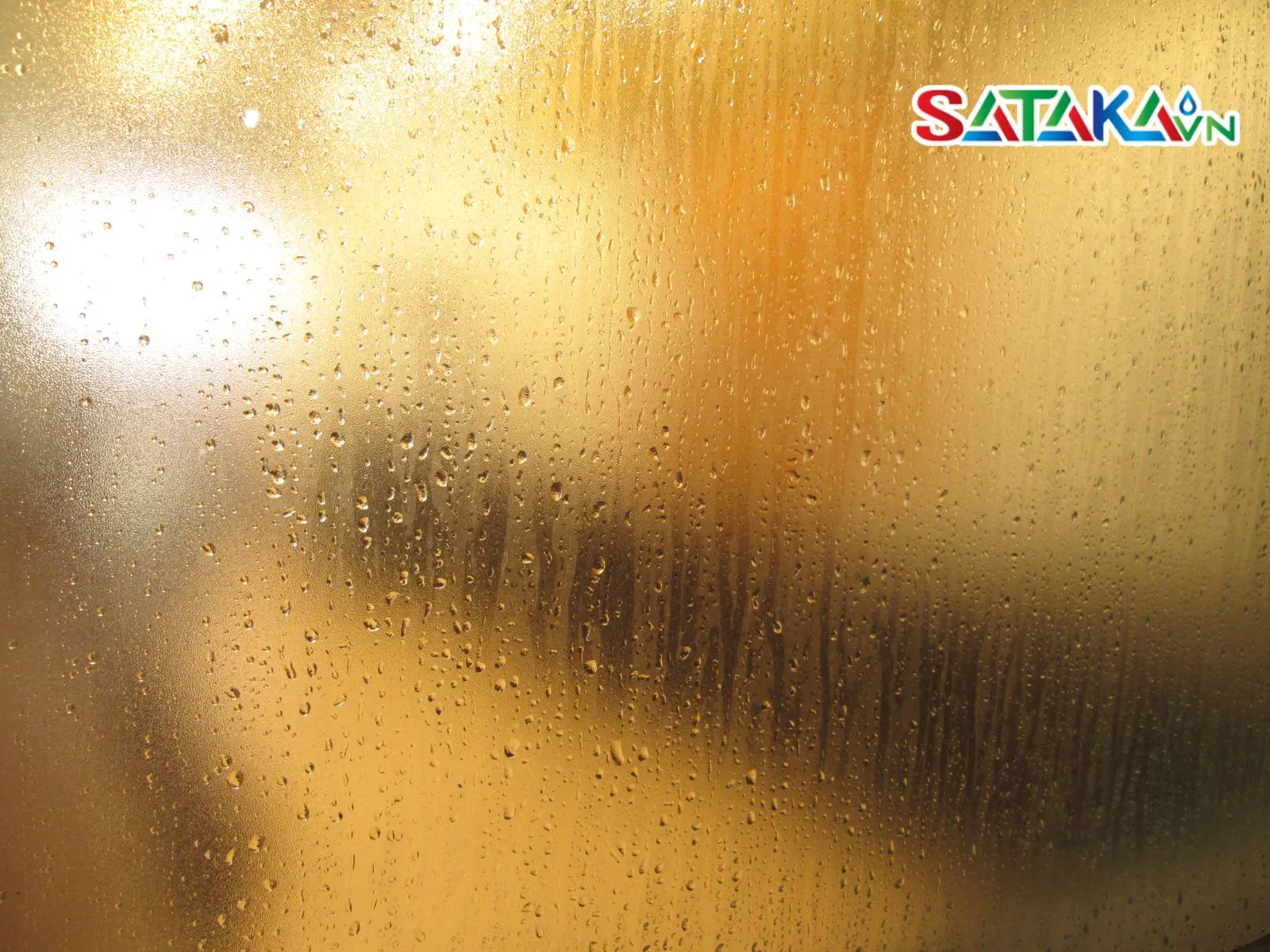
Hot and humid environment
Moreover, improper disposal of plant residues and inadequate weed management around cashew orchards create ideal habitats for mosquito bugs to grow and spread.
Biological Control: Using natural enemies of mosquito bugs, such as predatory or parasitic insects, is an eco-friendly and effective approach. Intercropping with certain plants that repel mosquito bugs can also help.
Insecticides: Targeted insecticides containing active ingredients such as Pirimiphos-Methyl, D-Tetramethrin, or Prallethrin are highly effective in controlling mosquito bugs. However, it is essential to select safe products and follow usage instructions to avoid harming the plants and the surrounding environment.
Manual Collection: For smaller orchards, manually collecting and destroying mosquito bugs can significantly reduce their numbers. This requires diligence and close monitoring of the orchard's condition.
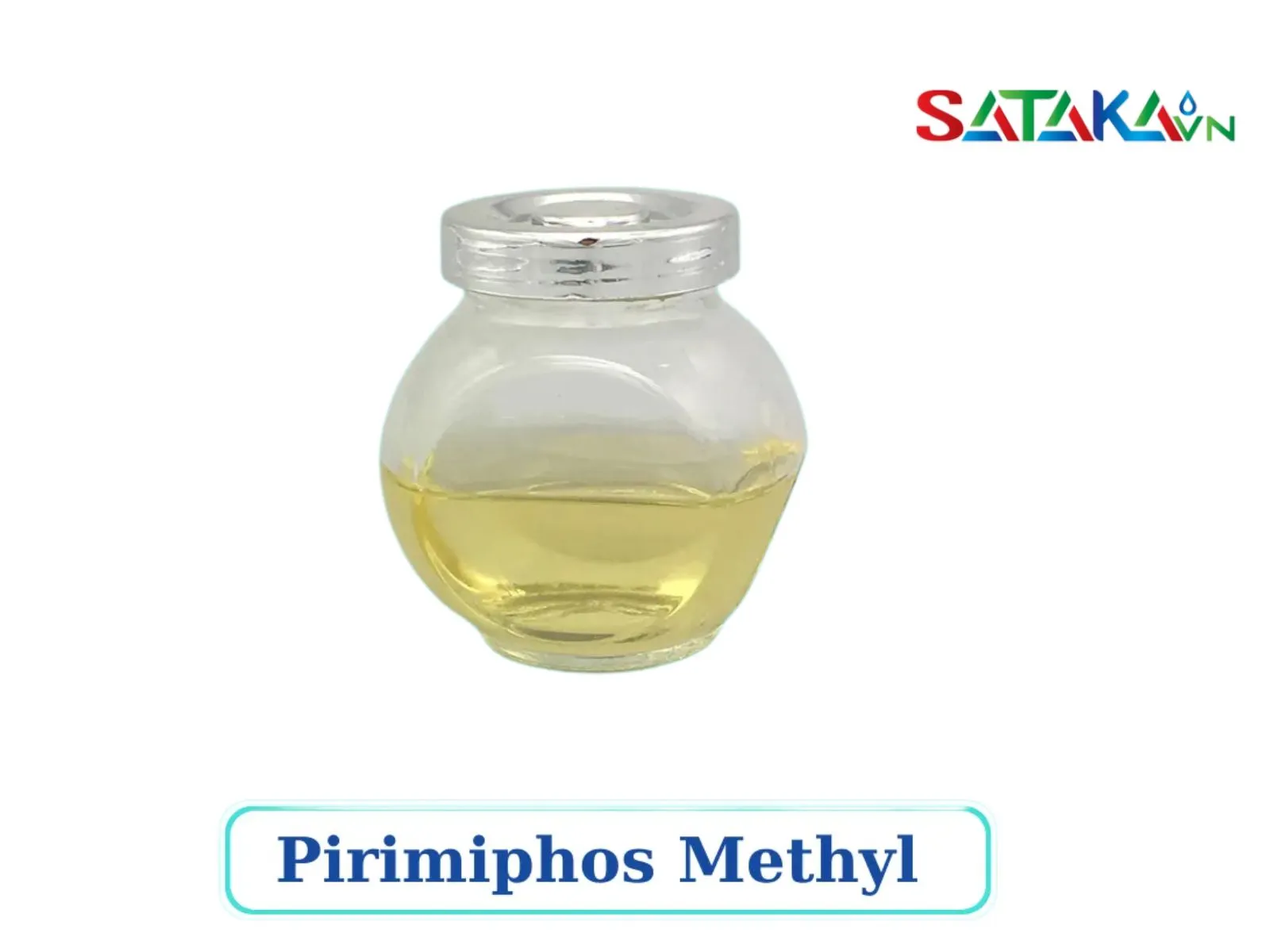
Active ingredient Pirimiphos Methyl kills bugs and mosquitoes
When using pesticides to control mosquito bugs, it is crucial to strictly adhere to guidelines on dosage and spraying intervals. Overuse or improper timing can harm the plants and reduce the effectiveness of the pesticide.
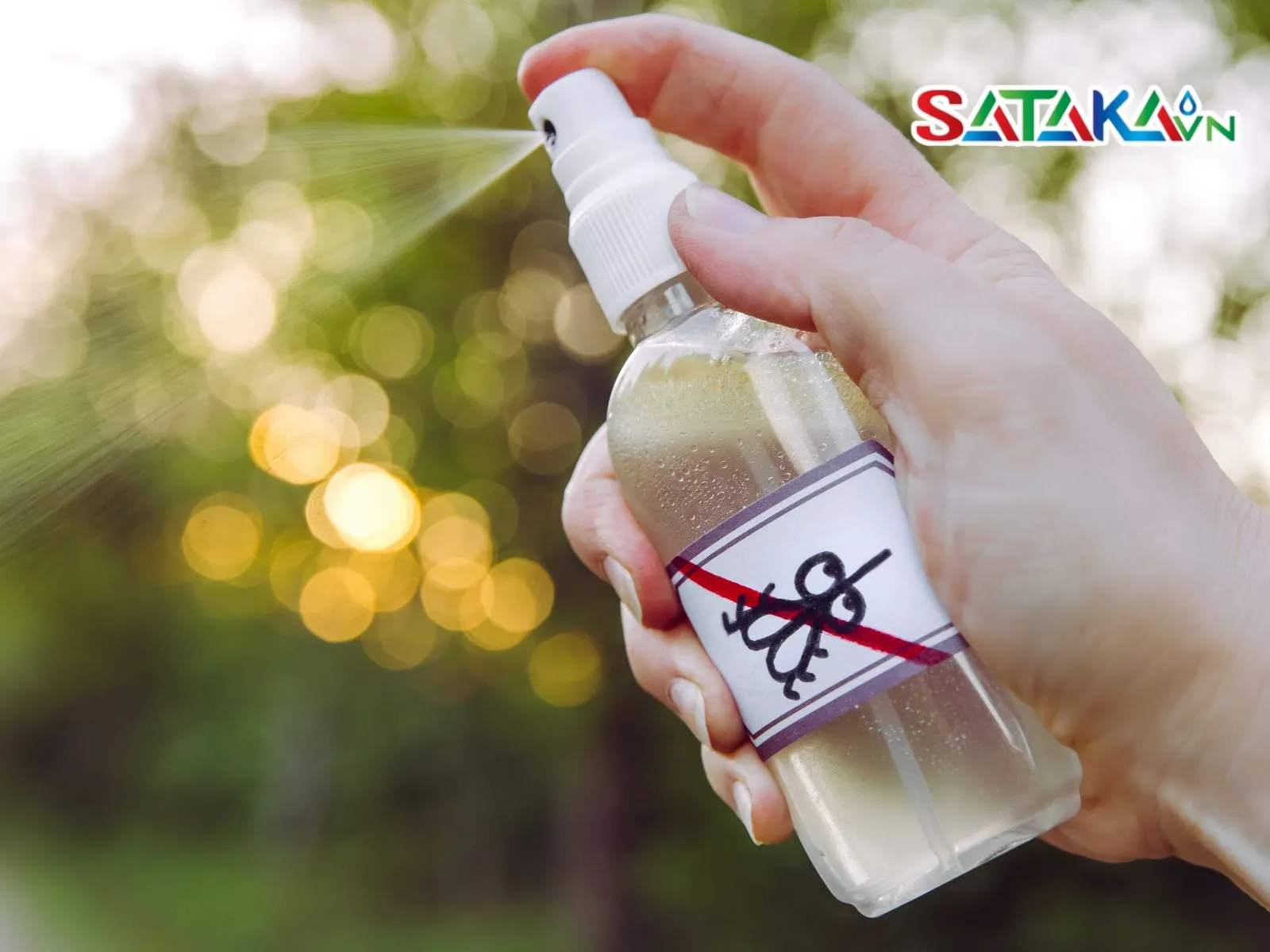
Follow dosage instructions when using the medicine
Some commonly used pesticides have proven highly effective against mosquito bugs. However, it is recommended to rotate different pesticides to prevent the bugs from developing resistance.
To protect cashew orchards from mosquito bugs effectively, implementing an Integrated Pest Management (IPM) system is a comprehensive solution. IPM combines biological, mechanical, and chemical measures in a balanced way to maintain ecological stability in the orchard.
Additionally, improving cashew cultivation and care techniques helps the trees build resilience against pest attacks. Regular monitoring and inspection are vital for early detection and timely resolution of pest problems in the orchard.
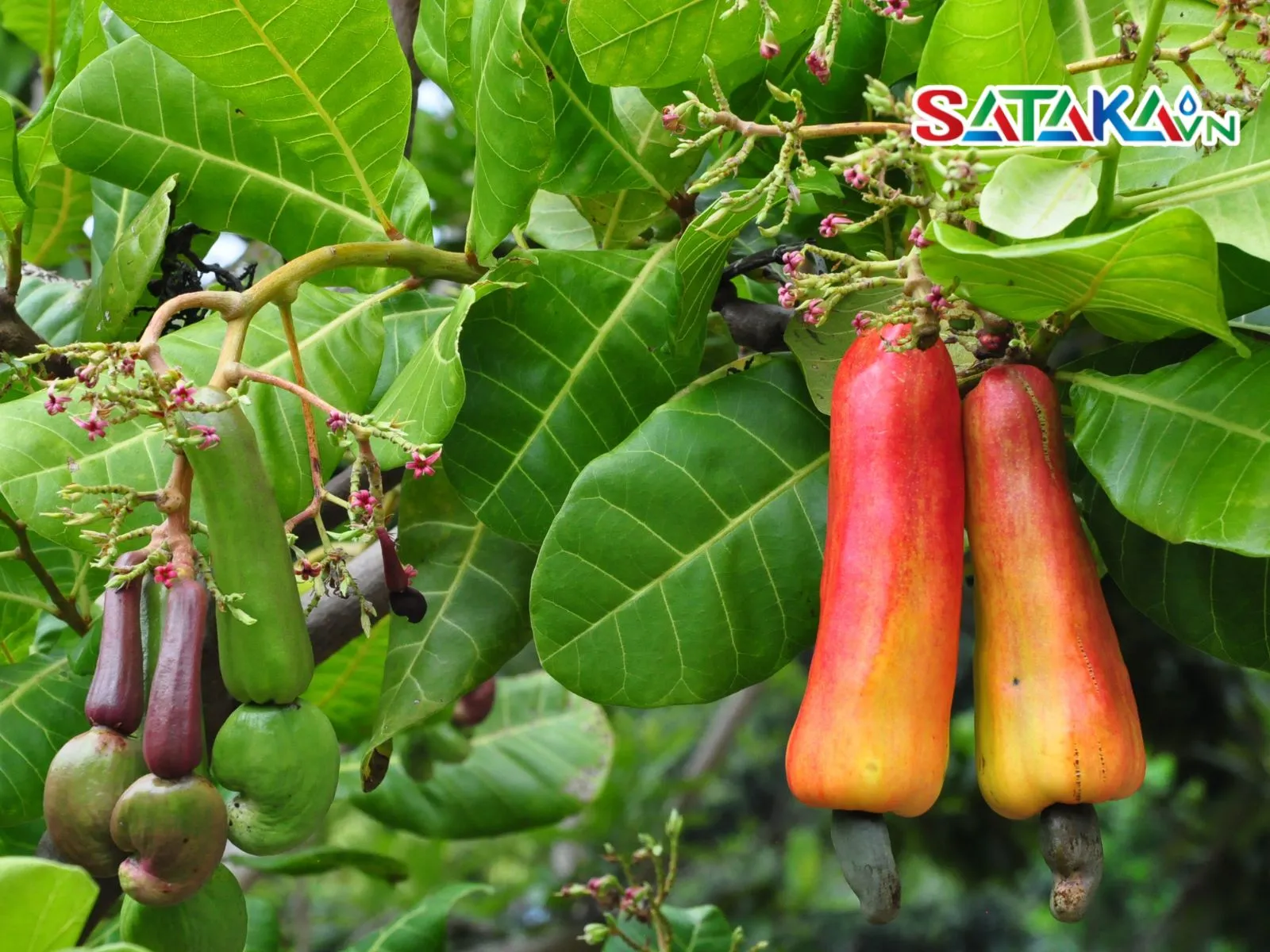
This article from Sataka provides clear, actionable, and practical information on controlling mosquito bugs in cashew trees, helping farmers proactively protect their trees from pests.